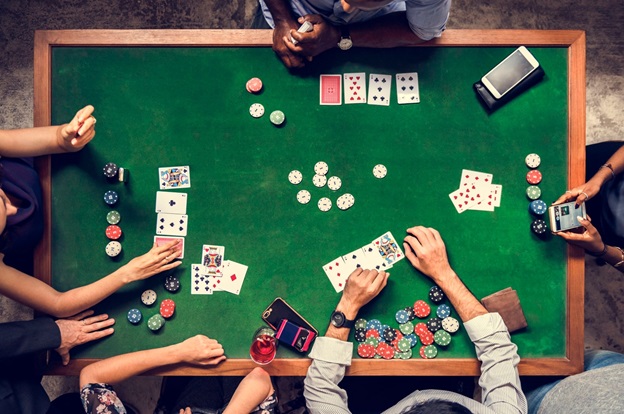Everyone has habits, good and bad, and that includes regular poker players. Trying to break a bad habit can be a challenging task, and it can be a problem for poker players in several different ways, most seriously costing them money.
While bad poker habits are less common in online casinos, making playing at the best NJ online casino even more appealing, they are still an issue that serious gamblers should make it their business to confront.
How do poker habits develop?
Many habits poker players develop are down to subconscious, deep-rooted perceptions about themselves or the game in general, such as believing that they are unlucky. That belief will be reinforced every time they lose a hand or a game. They become conditioned to react to stimulus in a particular way that seems to confirm that negative perception, with a stronger response produced by every subsequent confirmation until they have developed a bad habit.
Other bad habits can develop because of an absence of direction, with some players not doing adequate preparation, such as mental warm-ups before beginning a game. Failing to do something is itself a form of action, and many players focus so much on the habits they may be aware of when playing poker that they fail to notice those they have developed during preparation for play.
Challenging bad poker habits
To go about correcting a poker habit that has been identified as damaging to a player’s game in the right way, it is essential to determine whether or not the habit may have been the result of subconscious assumptions. If this is the case, it is vital to challenge those underlying assumptions and then have them actively replaced with others that are more beneficial to successfully playing poker.
Suppose a player has a bad habit of bluffing the river every time they miss a draw regardless of the nature of the board, for example. In that case, it may benefit them to perform some detailed mathematical analysis of the hands in question. Then, determine if there is even any profitability to bluffing in such circumstances, and then consciously try to identify spots in the game to give up on the river.
Another bad habit among poker players is giving up too early in the game. If this is the case, players should review some of their assumptions regarding variance. They should remind themselves of previous occasions where they have been able to come back from lost pots early on only to end up having a winning session and then try to play on for up to an hour after deciding to quit.
It is essential to make the brain face up to the moments where it is trying to ignore reality. Something that also applies to the fact that changing bad habits and embracing new ones can be uncomfortable but also very important to how you will be playing poker, online and off, for the rest of your life.

